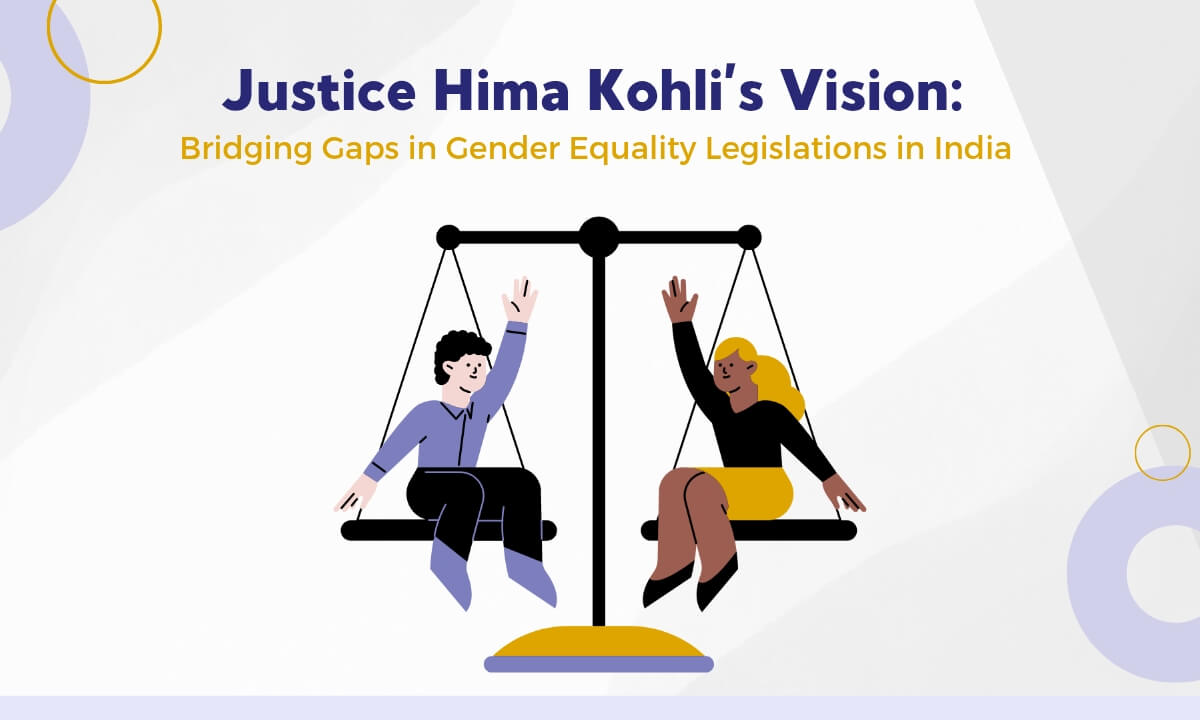Justice Hima Kohli, an eminent figure in the Indian judiciary, delivered the keynote address at the Anvay, a two-day global dialogue that aimed to shed light on the taboo topics of harassment and discrimination.
As the first woman Chief Justice of the Telangana High Court, appointed in 2021, Justice Kohli has been a groundbreaker in advocating for women’s rights and gender sensitization. Her appointment as the Chairperson of the Supreme Court’s gender sensitization and internal complaints committee underscores her commitment to addressing issues of harassment and discrimination.
With a rich background that includes serving as Chancellor of NALSAR University of Law and involvement in various legal councils, Justice Kohli brings invaluable insights to the discourse on gender equity.
The Importance of Gender Equality
Justice Kohli emphasized that gender equality is not merely a legal obligation but a fundamental pillar for strengthening communities, states, and nations. She articulated that equality ensures that every individual has access to the same resources and opportunities, while equity recognizes the unique circumstances each person faces, allocating resources to achieve equal outcomes. This distinction is crucial in addressing systemic inequalities affecting women and marginalized groups.
Addressing Gender-Based Violence
The keynote highlighted the pervasive issue of gender-based violence, which remains endemic in both domestic and workplace settings. Justice Kohli pointed out that despite constitutional guarantees for equality and dignity, women continue to face significant barriers to full participation in various spheres of life. The need for a comprehensive strategy to eradicate violence and harassment against women is paramount, necessitating integration into national and international agendas.
She also addressed the critical issue of online harassment during her keynote speech, underscoring the necessity of taking such incidents seriously and fostering greater awareness. She highlighted that as technology evolves, so do the methods of harassment, making it imperative for society to recognize the impact of online abuse on women’s lives.
Justice Kohli emphasized that online harassment is not just a digital issue but a significant barrier to achieving gender equality and safety in all spheres. She called for a comprehensive approach to combat online harassment, which includes legal measures, educational initiatives, and community support systems. By raising awareness about the prevalence and consequences of online abuse, society can empower individuals to speak out and seek help. Justice Kohli urged everyone to actively participate in creating a culture that condemns harassment and supports the aggrieved, ensuring that their voices are heard and respected.
Global Movements and Legislative Reforms
Justice Kohli discussed the global landscape shaped by movements like MeToo, which have intensified awareness around sexual harassment in workplaces. Various countries are responding with legislative reforms aimed at enhancing protections against harassment. For instance, the United States has strengthened laws regarding workplace harassment, while the European Union promotes gender equality through comprehensive directives.
India’s Legislative Framework
In India, significant strides have been made with the enactment of the Prevention of Sexual Harassment (POSH) Act, which provides a legal framework to combat sexual harassment at work. The Act mandates the establishment of Internal Committees (ICs) to address grievances effectively. However, Justice Kohli acknowledged challenges in enforcement and implementation, particularly concerning under-reporting due to stigma and lack of awareness about available channels for redressal.
Challenges in Implementation
Despite the POSH Act’s provisions, several barriers hinder its effectiveness. Issues such as under-reporting, lack of confidentiality during investigations, and limited awareness among women about their rights contribute to ongoing challenges. Justice Kohli stressed the importance of creating a supportive environment that encourages the aggrieved to come forward without fear of retribution.
The Path Forward
Justice Kohli concluded her address by advocating for holistic approaches that incorporate gender considerations into all levels of strategic planning and policy development. She called for increased awareness campaigns to educate women about their rights under the POSH Act, particularly in unorganized sectors where challenges are more pronounced.
She also emphasized that the collective responsibility to shape a future where equality is not merely an abstract concept but a lived reality. She articulated a vision of a world where safety, respect, and equity are integral experiences in every woman’s life—whether at home, in the workplace, or within the digital realm. Justice Kohli urged everyone to strive for an environment that upholds the dignity of every woman, amplifies her voice, and respects her rights unconditionally.
Finally, Justice Kohli expressed her heartfelt gratitude to The Legal Swan for facilitating this crucial dialogue, highlighting the importance of such conversations in advancing gender equality and addressing the challenges women face today.


